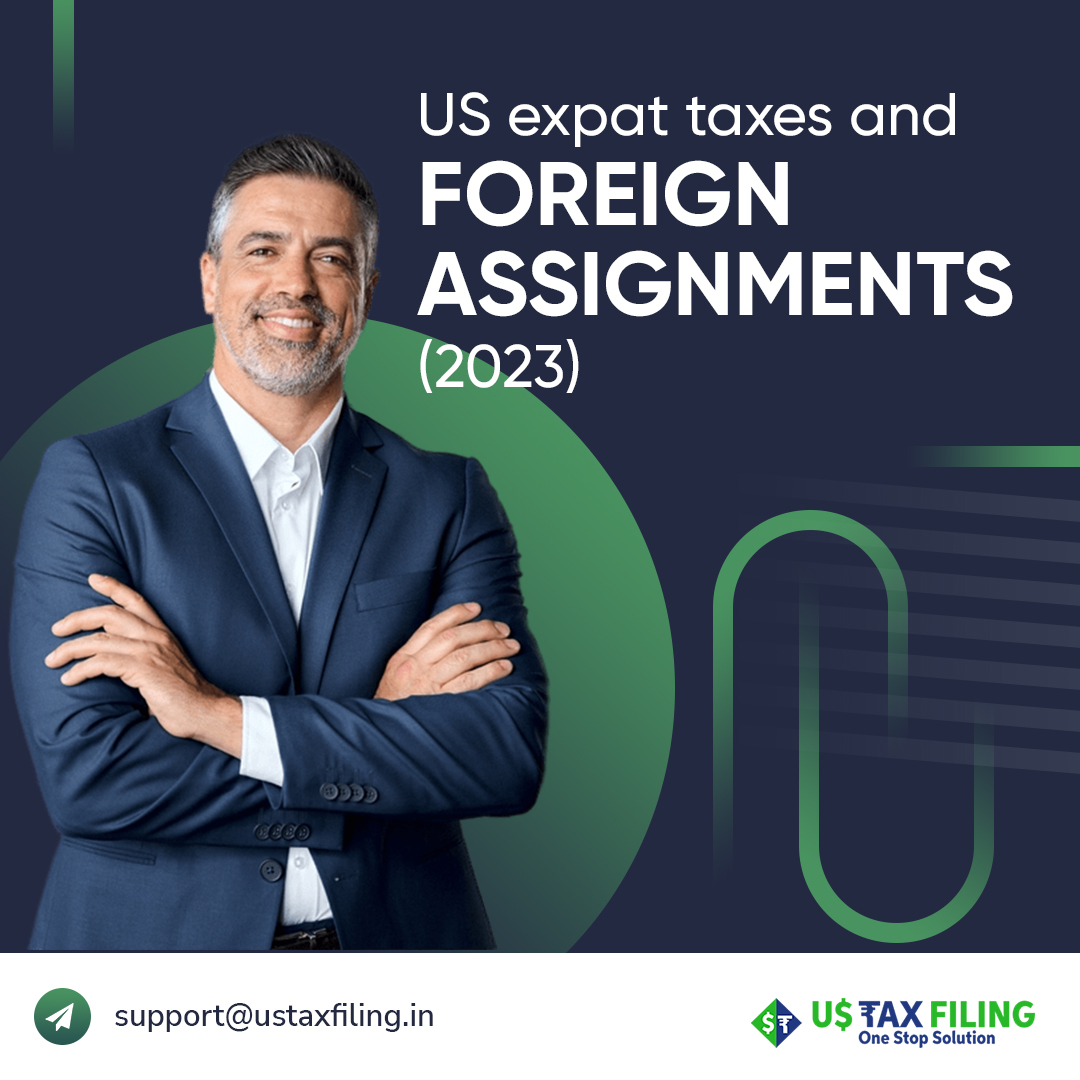The employer cost to send their employer overseas is no doubt costly when it comes to equalization packages, travel, continued payroll tax reporting, and other things. There is a need for tax planning to reduce these expenses. In this article, we will discuss everything about US expat taxes and foreign assignments. Continue to read the article till the end, so don’t read any important updates!
Nowadays, the trend has increased to send employees abroad. It is necessary for domestic US businesses to know the complete assortment of US expat tax problems that arise for both the employer and the workforce. The employer expenses of sending an employee overseas are no doubt costly when it comes to continued payroll tax reporting responsibilities, equalization packages, various reimbursements, and employee travel expenses. With advanced planning and a seasoned expert tax advisor, an organization can cut down on expenses and get the most from their employee’s foreign assignments.
Foreign earned income exclusion, US Expat taxes and Foreign Assignments (2023)
A domestic employer in the US must educate their workforce regarding all of the income tax implications of their move overseas before the employee’s acceptance of the foreign assignment. The employer must arrange the foreign assignment properly to ensure the employee’s eligibility for the foreign-earned income exclusion.
In order to do this, they have to make sure that the employee’s foreign assignment keeps them in a tax home section overseas for more than a year. It will help the employee to exclude up to $105,900 from US taxes of their income from their US expat income taxes.
Also, the employee should meet one of the following two tests necessary for foreign assignments and US expat taxes:
- Bona Fide Residence Test:
When an employee moves overseas on a foreign assignment for some time, it includes at least a full calendar year, they are eligible for FEIE (Foreign earned income exclusion) under the Bona Fide Residence test.
- Physical Presence Test:
The foreign assignments of the employee should put them overseas for a minimum of 330 days. The one-year period can be any time before the filing date of the US expat income taxes of employees.
Although the qualification of the employee for the FEIE (Foreign earned income exclusion) might be claimed by completing the 2555 form and attaching the form to their US expat taxes. Several workforces of US businesses might become eligible for the FEIE (Foreign earned income exclusion) using the Physical Presence Test.
Payroll taxes for Foreign Assignments
As a US domestic business, you have to withhold income taxes for your US employees, even if they are working overseas. Also, if the federal withholding of employee is eliminated due to their qualification of the FEIE (Foreign earned income exclusion), they might request an exemption from federal withholding by filling out form 673 and submitting the form to their employer.
Foreign housing deduction and exclusion
When a workforce qualifies for the eligibility test to become eligible for FEIE (Foreign earned income exclusion), they are even eligible to claim a deduction or even exclusion for foreign housing expenses. Foreign workforce whose housing was paid using employer-provided dollars is claimed on Form 2555 as a housing exclusion. Foreign housing costs paid with individual contractors or self-employment earnings can be taken as a deduction directly on the 1040 Form.
The appropriate deduction limitation eligible on expat taxes for every location is found in the Instructions for Form 2555. The amount excludable differs by location. Expenses eligible for the deduction or exclusion include repairs, property insurance, rent, utilities that do not include telephone, residential parking costs, and furniture rental.
In a few cases, a US-based employer might reimburse an employer for their foreign living expenses. While the reimbursements are included as a taxable income to the workforce, the foreign housing deduction or exclusion might be taken on the employee’s expat taxes. The amount reimbursed to the employee in excess of the host country’s permitted limitation might increase the employee’s US expat taxes. Also, due to the deduction not being taken for foreign housing expenses not being paid, the opposite is not true.
Foreign Tax Credit
The residence of an employee in a foreign country is subjected to taxation in their host country. An income taxpayer in the US who has to pay taxes to a foreign nation is eligible to use the expat US taxes to calculate a foreign tax credit on their expat taxes in the US.
The credit may decrease the employee’s US expat taxes dollar for dollar. The workforce cannot claim a FTC (Foreign tax credit) on income that has been excluded by the foreign housing exclusion or FEIE (Foreign earned income exclusion)
Equalization Package for Foreign Assignments
For organizations whose advance planning shows them that the foreign assignment might prove to be expensive for their employee, they may even consider providing a tax equalization package to the employee. A tax equalization program is a voluntary benefits program that helps employees with out-of-pocket tax expenses no less or more than if they might have stayed stateside.
The equalization program for employees includes consideration for foreign employer benefits that include foreign taxes, cost of living adjustment, housing, school tuition, and any other taxable parameters linked with their foreign assignment. Under this equalization program, the employer or company might reimburse the employee for any additional burden on their expat taxes in the US along with their foreign assignment.
Employer-Provided Benefits
The reimbursement by the US-based company to the employee for their personal expenses might generate additional income taxable to the employee. The reimbursements include:
- Home leave
- Relocation expenses
- Spousal allowance
- Education cost
- Automobile allowance
Also, any expenses reimbursed to the workforce for direct business expenses or deductible traveling costs might not increase taxable income. Moving or traveling expenses are deductible only if they meet the following three eligibility criteria:
- The employee should be full-time employed for at least 39 weeks following the move
- The travel should be related to the start of work at a new place
- The new location for the job should be greater than 50 miles from your past location
These costs might only include the actual expenses to travel household goods from the past location to the new one, that includes temporary storage if required and travel costs. Meals, travel associated with house-hunting, or even temporary living costs are not deductible.
Also, any reimbursements for these costs made by the employer become taxable to the employee. Any amount paid to the employee of the company as reimbursement for the loss on the sale of their house is a taxable event to the staff. These extra taxable reimbursements must be included on the W-2 form of the employee and must be reported on their American expat taxes.
Other Considerations for Foreign Assignments
US domestic organizations that send employees overseas must enlist the assistance of a seasoned expat tax expert who is aware of the laws of the host country. Every host country has its own tax rates, laws, and treaties, and everything has an impact on the resulting American expat taxes.
For the company in the US, having a workforce set up a permanent location overseas might create corporate tax responsibilities in the host country.
Conclusion
There are several facets of working abroad as a citizen of the US, and they all must be determined before an agreement is set up between the employee and the stateside employer being determined for a foreign assignment. You might be wise to take suggestions not only from an expert in the US but also from a tax expert from the country to which you plan to send your workforce.
More Information About Tax For Foreign Assignments
There are several parameters when it comes to foreign assignments that should be reviewed before accepting them, both by the employer and the employee. Our USTAXFiling experts are highly skilled and have rich years of experience. You don’t have to worry about anything when it comes to US expat taxes and Foreign assignments. We at USTAXFiling.in are always here to help you in the best possible way related to income tax filing. You can discuss all your queries, and our USTAXFiling experts will make sure to resolve them at the earliest. Our dedicated team ensures to keep all the updated information related to US expat taxes and foreign assignments. So, Your wait is over! Call USTAXFiling.in to reduce your expenses related to sending employees abroad on foreign assignments right away.



